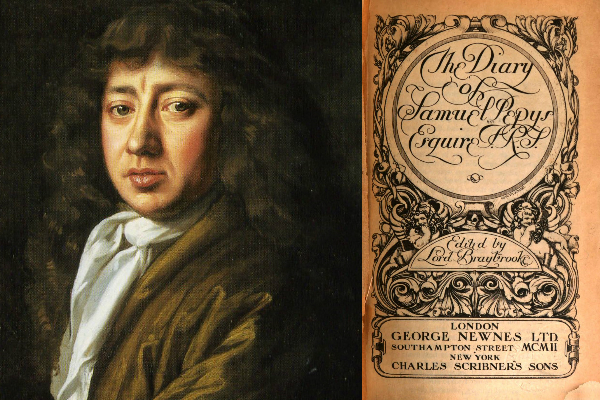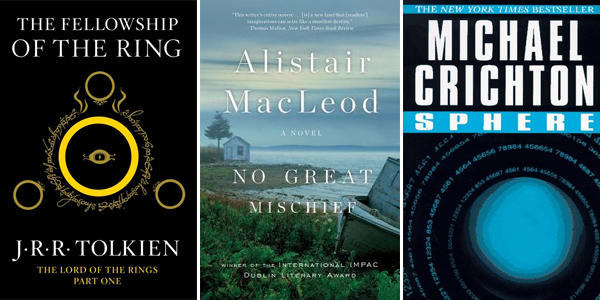Famous Writers Who Weren’t Truly Recognized Until They Were Long Gone
It's easy to assume famous writers were recognized as geniuses in their own time. A classic now is a classic then is a classic always, right? Not so. In fact, sometimes the authors themselves died first and went to their graves with no idea about their impending cultural and literary prominence. Here are few examples you might not have expected!
Samuel Pepys: “Who?” is possibly the first thing you said on this entry, and I don't blame you. Samuel Pepys (pronounced PEEPS) didn't pen any of the great novels you've pored through, on your own or in school. He didn't fight in any great battles, he didn't unify a nation or have an exciting political career. Hell, he didn't even murder a lot of people in an interesting way.
But… he kept a diary.
For ten years, beginning on January 1st 1660, Pepys began chronicling his day to day life as a naval administrator in London. His entries weren't always long or detailed, but they were extremely regular, providing a remarkable day-by-day window into life in 1600s London. This is a helluva period to be chronicling, being both the Restoration era, the time of the Great Plague of London, and the Great Fire of London. After ten years, he stopped keeping it reliably. He continued to live his life. Eventually, he died, in 1703. The diary itself wasn't published until the 1800s, when it became popular and the important historical document it is now understood to be.
Important though it is… it's also a lot of fun. We always read about the great figures in history, but the simple fact is, Samuel Pepys is kind of a tool. From the diary, we encounter what feels like a boring person in an exciting period of history, mainly just complaining about things or talking about his day in the most boring way possible. Also, his wife has had it up to here with his shit – justifiably so – and this becomes a recurring theme throughout the diary. Because, as I mentioned… he was a tool. It's amazing fun to read. And if you don't want to read all ten years at once, why not subscribe to the Samuel Pepys Twitter Account and have him grumbling his way through the 1600s right there in your feed. He fits in remarkably well. He was a blogger and tweeter well before the rest of us, our Mister Pepys.

Emily Dickinson: You probably know who Emily Dickinson is (and if you don't: she was an American poet, and she's pretty famous. Get with the program!). But you perhaps don't know is her publishing history, or utter lack thereof, which is a poignant and fascinating story. In her lifetime, Emily Dickinson published one or two poems. Total. She doesn't seem to have been happy with something about publishing, or appearing in print perhaps, and declined to publish further after that. A few of her poems appeared in newspapers anonymously, and it is presumed they were published without her knowledge by her only actual audience, her family and friends. She was an intensely private, shy person, all her life.
But after Dickinson's death, her sister Lavinia discovered almost 1800 poems of Emily's, all unpublished. She had never stopped writing and had been a remarkable and prolific talent… but she simply did the work, then kept the writing carefully shelved in her rooms. Nobody seemed to know about them. She left no instructions, upon her death, for what to do with them.
The story of how they came to be published is a long and interesting one, but it fascinates me how irrelevant it all was to Emily Dickinson herself. The writing was the thing, and she didn't seem to care beyond that. It wasn't that she failed to publish and gain acclaim within her lifetime. She just didn't seem to want to, or even try for it.
(Also, random trivia for you: quite a lot of Emily Dickinson's poems can be sung to the tune of “The Yellow Rose of Texas”. Make of this what you will.)

Herman Melville: Both Samuel Pepys and Emily Dickinson wrote their works for themselves, and that seems to have been it. Not so for Herman Melville, though. His writerly aspirations are much more familiar to us. He was writing and publishing and he wanted to succeed. And more than that… he was succeeding. For a little while.
His first two books were Typee: A Peep at Polynesian Life, which was an instant bestseller, and its follow-up Omoo: A Narrative of Adventures in the South Seas, which also did extremely well. The problem is, when he followed these popular “look at these weird foreigners! Look at my adventures at sea” stories with other, different works…the public responded with no particular interest. He had been pigeonholed into writing adventures at the high seas.
So he began work, eventually, on a book called Moby Dick, or, The Whale. It was meant to be a nice normal sized novel about an obsessed Captain Ahab hunting the White Whale, and we follow long in the stead of a man named Ishmael. You know the story. As he wrote, however, the book ballooned wildly from a slim volume of sea adventure into the gigantic tome we know today. He was obsessive about writing it, certain he was onto something brilliant, and the book completely ran away from him. (And you can tell. Studying Moby Dick is funny and interesting. There are way too many characters than there should be sailors on that boat, for one thing. And there is a strange character who turns up a couple of times who was clearly meant to be the book's main character, from the descriptions. Once, we describe him in awe-inspired detail. Ages later, he is mentioned again because he died earlier off-page.)
Moby Dick was a disaster. It was too big and too weird for everyone. The reading public hated it immediately. Critics considered the public's hatred of it, nodded, then dogpiled their own loathing on top of it. It just could not have been a bigger failure for Melville.
He kept trying to write, but Moby Dick had sunk him. His further writings did nothing much. By 1876, all of his books were out of print. Eventually, he retired and began working, taking up a customs job and turning to booze. At the end of his life, decades on, there was some small interest in him again, but that fizzled out when he went and died. And that was that, until the 1920s, when an interest in Melville began to slowly come to life.
You know the result of that revival now, of course. Moby Dick lives on as a classic. The idea of Ahab and the white whale are ingrained into our pop culture, well known even to people who have never glimpsed that big weird (wonderful) book.
The moral of these stories? Cheer up about that rejection letter, buddy! Maybe decades after you're dead you'll be recognized as a genius! Look, I'm trying to be positive here.

Peter Damien
Peter Damien lives in the Pacific Northwest where he writes quite a lot, reads quite a lot, cooks many things, and tries to keep his cat from escaping outside. He’s been published at BookRiot, SF Signal, and a great number of magazines and anthologies. You can find him on twitter @peterdamien , or you can say his name three times in a mirror, but that won’t work and you’ll feel very silly.



